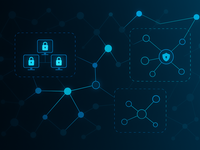
Coalfire Articles


AI Governance
The CISO's 2026 Challenge: Why Traditional Security Can't Keep Up with AI Agents
January 6, 2026
Read more

Blog
The Hidden Savings of Micro-Segmentation: A Prescription for Lower Cyber Insurance Costs
12 min read
December 31, 2025
Read more

Cyber Risk Advisory
Beyond the Post-Mortem: Turning Digital Forensic Truths into Budget Victories
December 29, 2025
Read more


Compliance
2025 Cybersecurity Year in Review: Frameworks, Regulations, and the Path Ahead
December 17, 2025
Read more

Cyber Risk Advisory
How Effective BIAs Turn Disaster Planning into Cybersecurity Business Cases
December 15, 2025
Read more


Coalfire Article
The Smart Guide to Selecting a SOC 2 Auditor—Beyond the Certification Stamp
December 10, 2025
Read more